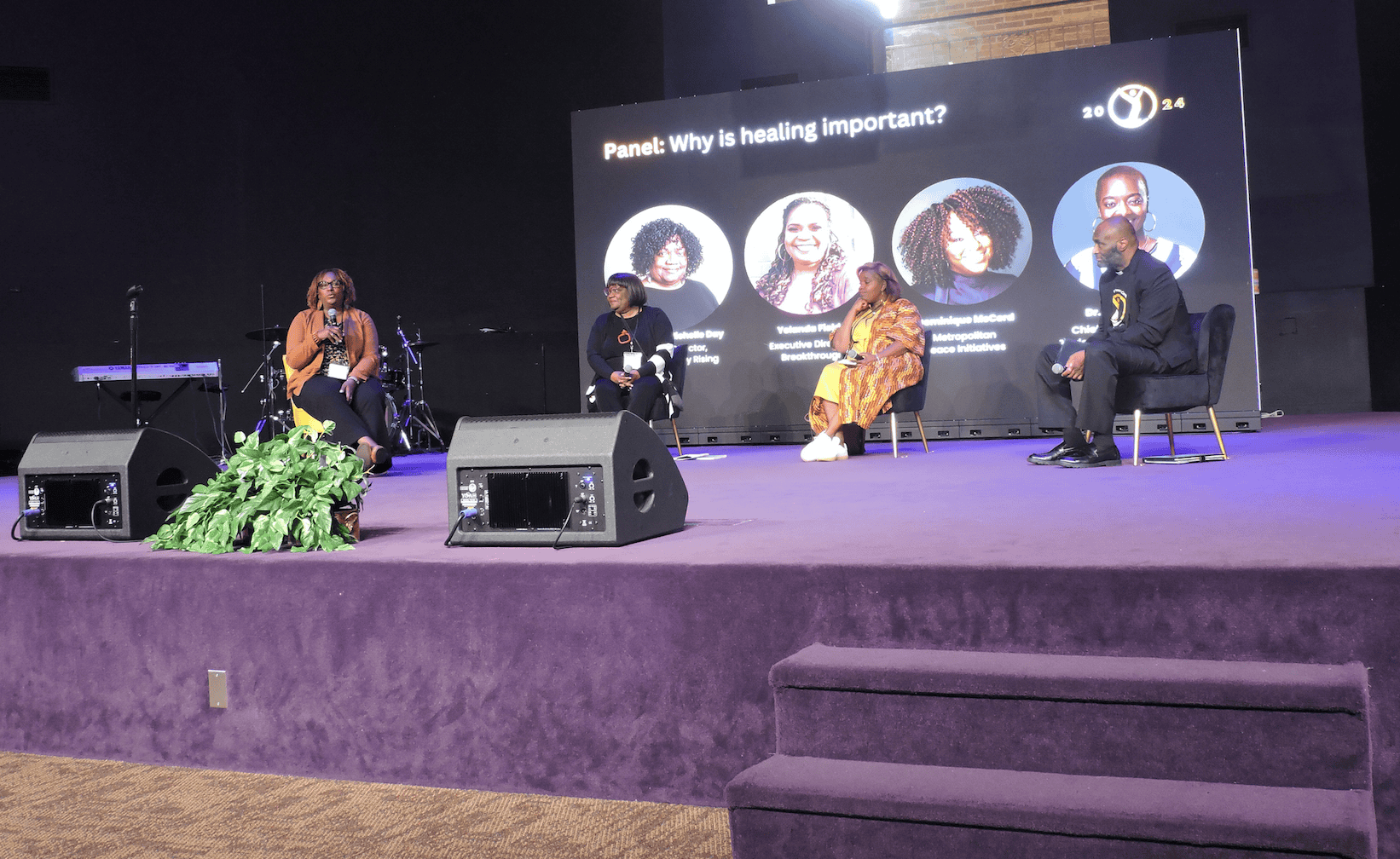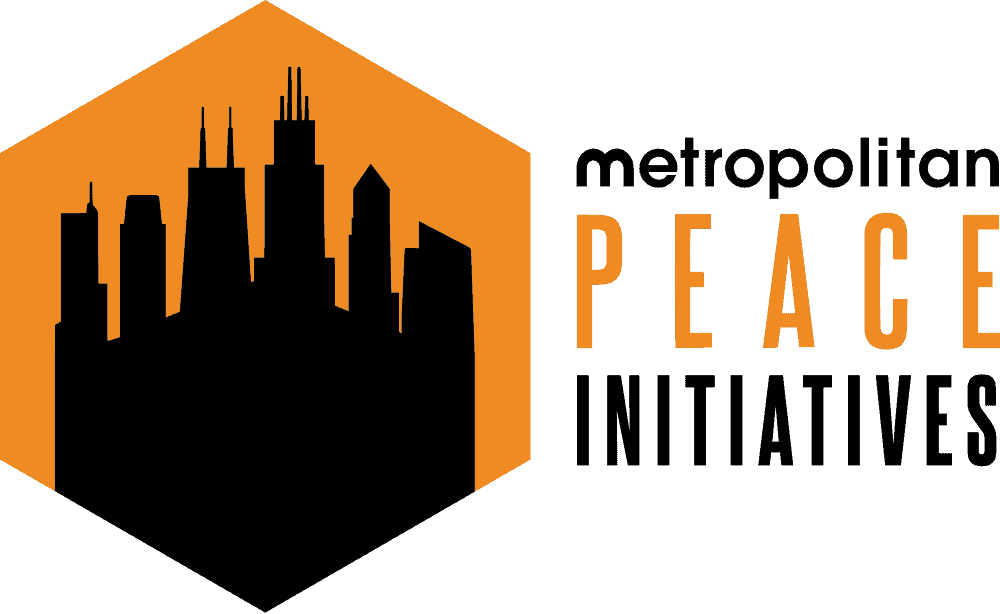‘Trauma Is Real’: CVI Leaders Discuss the Importance of Healing

(L-R) Metropolitan Peace Initiatives Chief Program Officer Domonique McCord, Nehemiah Trinity Rising Founder and CEO Rev. Atty. M. Michelle Day and Breakthrough Executive Director Yolanda Fields sit for a panel moderated by LIVE FREE Statewide Organizer Pastor Deric Caples at the “Healing Justice: Community Healing Resource Network Symposium” on Wednesday, May 15, 2024 in Morgan Park.
With May being recognized as Mental Health Awareness Month, and specifically, May 15 being observed as National Trauma Survivors Day, there was no better time for leading voices in the community violence intervention (CVI) and restorative justice spaces to speak on the effects of trauma and the strength in healing.
Metropolitan Peace Initiatives (MPI) Chief Program Officer Domonique McCord was among the panelists for a discussion on the importance of healing, which took place at LIVE FREE Illinois’ inaugural “Healing Justice: Community Healing Resource Network Symposium” on Wednesday, May 15, 2024, in Morgan Park. She was joined by Breakthrough Executive Director Yolanda Fields and Nehemiah Trinity Rising Founder and CEO Rev. Atty. M. Michelle Day, as LIVE FREE Statewide Organizer Pastor Deric Caples moderated the conversation.
Panelists kicked things off by explaining the specific ways in which healing is happening in the neighborhoods they serve. From providing behavioral health resources (therapy, meditation, etc.) to restorative justice practices, the group discussed how their efforts are community-centered and designed to work from the inside out.
“We recognize that we want to approach [trauma] from a holistic perspective. Healing means that people have access to finding ways—such as gaining employment—to live a dignified life. We believe in employing practices that help people,” McCord said.
McCord explained how MPI, for example, convenes Communities Partnering 4 Peace (CP4P), a coalition of 13 nonprofit organizations dedicated to reducing gun violence in Chicago across 28 neighborhoods. (Breakthrough works in Garfield Park as a partner in the coalition.)
Together, the collective’s strategies not only include behavioral health and victim services, but also street outreach, legal aid, and workforce development. Such approaches, among others, can help individuals dealing with trauma get to the root of the issue and begin to turn pain into power.
“There is no peace without justice, but there’s also no healing without justice,” Rev. Atty. Day said. “[…] Yes, hurt people hurt people, but you have to get to the bottom of the hurt. When you’re trying to get to the bottom of the hurt, you have to address all aspects of the cause.”
All three panelists made it a point to recognize that these tactics must be collaborative and customizable for the varying communities that they serve. Whether young or old, rich or poor, Black, Brown or otherwise, there is no one-size-fits-all approach to helping those suffering from trauma.
“It is important that we include the community in our decision-making,” Fields said. “What has become best practice for us is consistently checking in with our community to ensure that what we think is healing and what we think is restorative actually is, and that the intent that we have is actually the intended impact.”
She added, “From an organizational perspective, we can have well-intentioned strategies, but if we have policies and procedures that are not trauma-responsive or trauma-informed, we continue to do harm.”
McCord drove home the point that it’s equally important that care be extended to those facilitating the healing. Far too often, we make the mistake of only comforting the person at the center of the trauma.
“We have to ask ourselves often, ‘Who is taking care of the caretaker?’ Vicarious and secondary trauma is real. We have to find better ways to support our staff,” McCord said. She gave examples of encouraging staff members to take their PTO or checking in with each other on a personal level, aside from “the work.”
“Sometimes you have to pivot and stop the agenda to make sure we’re taking care of each other,” McCord said. “This work is hard, and it does not come without sacrifices.”
